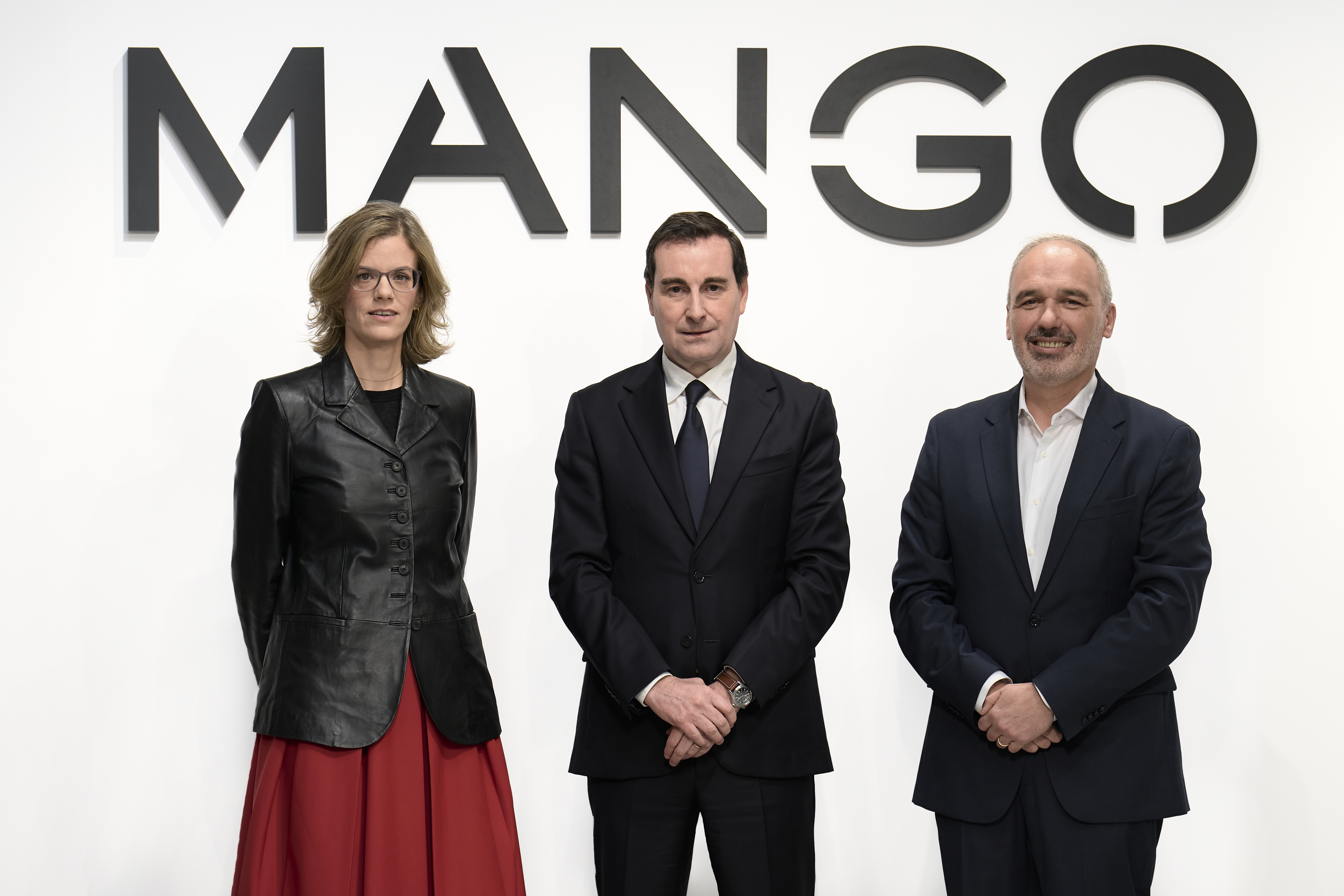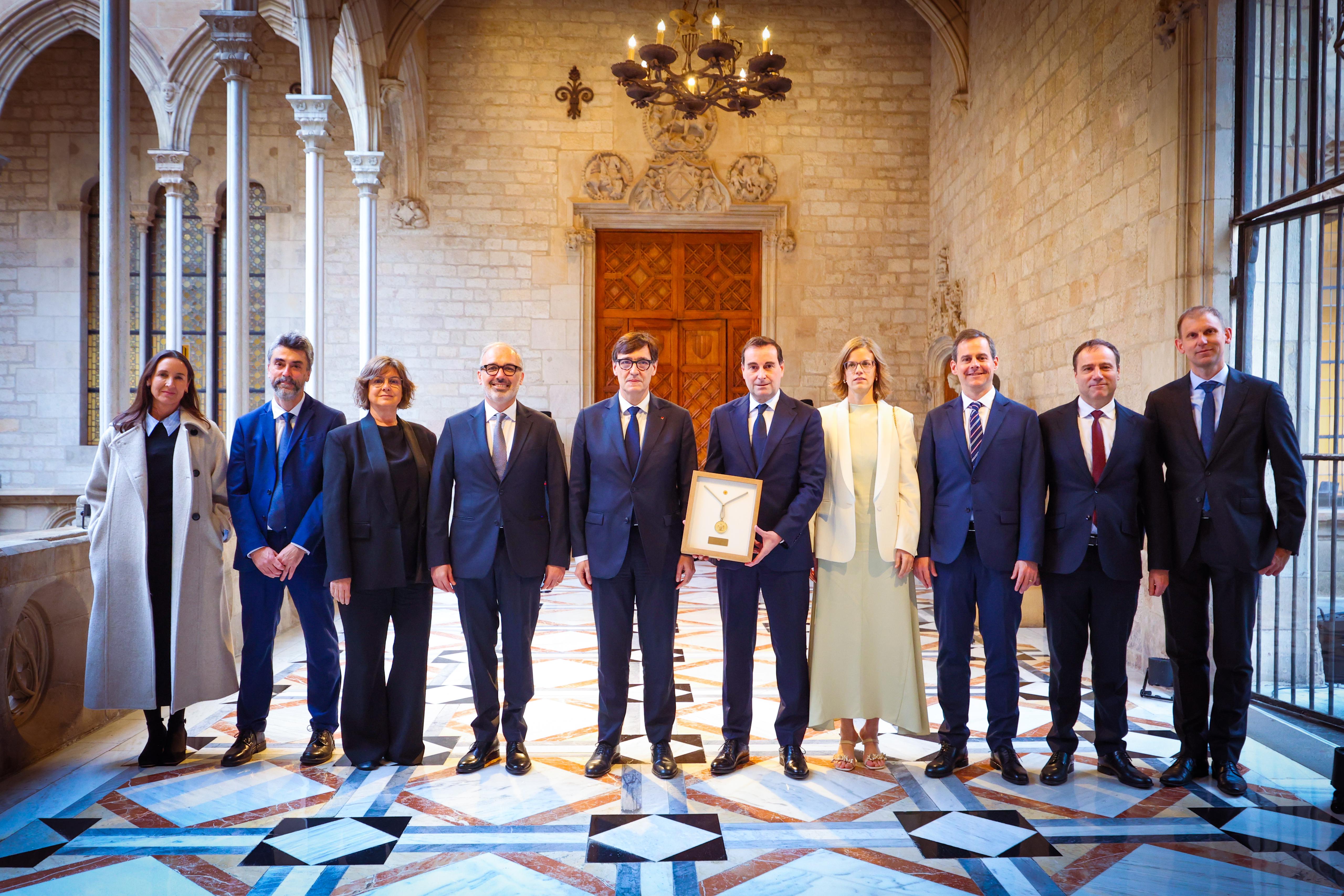Mango closes 2020 with a turnover of 1.842 billion euros and an ebitda of 193 million euros
Mango closes 2020 with a turnover of 1.842 billion euros and an ebitda of 193 million euros
-
- Online income represented 42% of total turnover, after growing by 36% to reach 766 million euros.
- The turnover of physical stores fell by 43%, having been affected by store closures or limited opening hours and/or customer numbers during much of the year.
- The company remains in a healthy financial state: net bank debt fell by 20%, to 156 million euros.
- The company is accelerating its digital transformation by investing 27 million euros in priority projects related to digital transformation and its Customer Centric strategy.
- Mango is advancing in sustainability by signing the UN Fashion Industry Charter, the growth of the COMMITTED collection and by replacing 160 million plastic bags with paper bags of sustainable origin.
- The company is committed to transparency and is publishing the list of the main factories in its supply chain.
- Rapid roll-out of the loyalty programme: implantation in 6 new countries and over 5.5 million active customers.
- The company has begun 2021 with four new strategic projects: the launch of a new homeware line, integration of the Violeta line within the Woman collection, new marketplace capacities for mango.com and the construction of the new Mango Campus.
Mango closed the 2020 financial year with a turnover of 1.842 billion euros. For its part, EBITDA, after applying the IFRS-16 reporting standard, stood at 193 million euros. 2020 has been the first financial year in which Mango has had to apply said reporting standard.
The year can be divided into four clearly-differentiated periods. The months before the pandemic, January and February, in which the company recorded a sales growth of 8%. The first wave, between March and June, when virtually all the physical stores were fully or partially closed and the online channel accounted for up to 93% of company sales, limiting the fall in total income to 50%. The recovery period, between July and October, months in which the stores network was approaching a return to normality and in which it recovered 2019 turnover levels (in October sales were only 6% lower than those of the previous year). And finally, the second wave, in November and December, where once again there were closures in the stores network and the online channel again witnessed major increases in turnover during Black Friday and the Christmas campaign, two of the most significant turnover periods for the fashion sector.
Given this situation, the online channel has again experienced major growth, with a turnover totalling 766 million euros, 36% more than the previous year. With these figures, the online channel now represents 42% of total group turnover, a percentage well in excess of the 24% figure for 2019. The growth of the online channel has been significant in the 85 countries in which it is available. The growth it experienced in some of the company’s major markets, such as France, Italy or Portugal, is particularly noteworthy, were it recorded increases of close to or above 100%.
The physical channel has been greatly affected by the constant application of restrictive measures imposed by the health authorities in each country. Such measures have resulted in the store network being permanently closed or limited with regard to opening hours and/or customer numbers during much of the year, which has led to a 43% drop in turnover in this channel.
In the words of Toni Ruiz, Mango’s CEO: “We have experienced an absolutely exceptional and unpredictable year for everybody. Thanks to the major commitment Mango has made to its online channel over the last 20 years, we have succeeded in it representing 42% of our total turnover in 2020, which is an extraordinary figure in our sector and a huge competitive advantage for our company”.
In the autumn of 2020, the company celebrated the 20th anniversary of the launch of its e-commerce with approximately 750 million visits, 25% more than the previous year.
Mango aims to post an online turnover of 1 billion euros in 2021 and to achieve this, it has several new projects: hyper-personalisation of the browsing and shopping experience on all devices, the use of new technologies based on artificial intelligence to improve the after-sales service and the inclusion of franchises in omni-channel retailing initiatives.
With regard to the distribution of turnover by geographical regions, the international activity of the group totalled 79% of the total, while the Spanish market represented 21%. By business lines, Man, Kids and Violeta continued to account for 18% of total sales.
General management focused on maintaining a solid financial position
Faced with the unexpected closure of physical stores in March, the management team of Mango has focused on guaranteeing the company’s financial solidity and liquidity.
A significant part of the effects derived from the drop in sales was stemmed thanks to the quick and efficient reaction of the purchasing teams, which made major changes to the structure of the existing collections and at the same time launched new collections (Comfy) in accordance with the needs of customers.
A consequence of this was the optimal management of stocks, which were reduced by 10% compared to the levels obtained at the close of 2019.
In addition, Mango implemented a series of measures that made it possible to reduce the company’s operating expenses by 230 million euros. The company also increased its liquidity through an ICO loan valued at 240 million euros.
As a result, Mango was able to reduce its net bank debt for the fifth year running, reducing it by almost 20% (from 194 to 156 million euros), obtaining an EBITDA of 193 million euros (equivalent to 21 million euros without the application of the IFRS 16 reporting standard). After applying the financial expenses and the accounting adjustments, the gross result was a loss of 110 million euros, compared to a profit of 41 million euros the previous year.
According to Toni Ruiz, “we should be satisfied with the work we have done during this very complicated year. We have achieved reasonable turnover levels bearing in mind the context and we have accelerated the digital transformation of the company even further. I would like to emphasise the huge effort made by the best team we could wish to have. Thanks to all our employees, the financial and organisational structure of the company remains very solid”.
Investment of 27 million euros for further advances in digital transformation
Throughout last year, the company maintained all the investments related to its digital transformation and increased the resources allocated to the areas of Technology, Data, Online and Customer to a total of 27 million euros. The goal of the company is to digitally transform its value chain and rapidly advance in directing the entire organisation towards the use of real-time data and decision making.
To achieve this, Mango is building new platforms and capacities based on technology, data, artificial intelligence robots and algorithms. The latter are principally driven by the analysis of customer behaviour, together with knowledge of the product life cycle and real-time tracking of stocks.
Such capacities have been increased this year in the areas of product (design employing 3D technology), Customer Service (chatbot and AI robots to improve the service), logistics (RFID to track stocks from the manufacturer to the store), stores connected to our online platforms (omni-channel overview of stocks, making it possible to personalise and recommend products and improve the experience of our customers) and a new virtual reality platform where franchisees can access a showroom with all the Mango collections.
Advances in Customer and Omni-channel retailing
At the close of the financial year, Mango had implanted its Mango likes you loyalty club in 6 new markets: Germany, Belgium, Luxembourg, Portugal, the Netherlands and the United Kingdom, in addition to Spain and France, where it has been operating since 2019. The programme is a huge success in all these markets, where it now has over 5.5 million active users. For this reason, by the close of 2021 the company plans to have implanted it in double the number of countries, so that Mango likes you will be available in the countries that represent 70% of the company’s total turnover.
Similarly, in March we created an online community made up of customers, conceived as a forum for interaction and conversation between customers and the brand. The goal of this new initiative is to know at first-hand the needs, expectations and concerns of customers, and to create and collaborate with them in new company projects, among them those related to sustainability, the evolution of trends in the fashion industry and the role of stores in the new, post-COVID context. The community currently has active members in more than 60 countries.
Throughout 2020, the company has continued to expand its omni-channel services. By way of example, the Click & Collect service has been extended from 8 to 17 countries.
Stability of the stores network
Mango is maintaining its commitment to the physical channel because it sees physical stores as one of the most important touchpoints with the brand within the Customer Journey. At the close of 2020, the company had 43 more stores than in 2019, with a total of 2,221 stores in over 110 countries. The total selling space currently stands at 790,000 m2. Of the total number of stores, 140 are megastores, premises with a surface area in excess of 800 m2.
The company opened more than 150 stores during 2020. Among the most significant were the new stores in Vienna, Manchester, Paris, Copenhagen and Antwerp, as well as two store openings in Kiev and four stores in the Italian market, where Mango now has 73 stores.
Also, in September, the firm announced in France the opening of two corners in Galeries Lafayette, one of the most prestigious department stores in the world.
Outside the European market, Mango opened 39 new stores, key among them ten new stores in India, where the company now has 29 stores thanks to its expansion plan developed alongside Myntra, its local partner.
Major progress in the commitment towards sustainability
Throughout 2020, Mango has continued to make firm progress in its commitment to sustainability by implementing numerous initiatives, key among them the following three initiatives:
In October 2020, the company signed the United Nations Fashion Industry Charter for Climate Action, which sets out 16 principles so that the fashion industry will work together to combat climate change. In line with the commitments acquired in this agreement, Mango will set itself SBTs or Science-Based Targets to reduce its carbon footprint throughout 2021.
On mango.com the multinational has listed all the Tier 1 factories in its global supply chain, in line with the transparency commitments acquired by the company in the Transparency Pledge Standard.
Mango is the first major Spanish fashion retailer to implement these last two initiatives.
The COMMITTED collection, made up of garments with sustainable characteristics, increased from 19 million units in 2019 to 47 million units in 2020.
Mango has also made progress in its fight against plastic, in line with its goal to protect the oceans, by using alternative materials to eliminate plastic from its entire supply chain. Various pilot tests were conducted in different countries with paper bags of sustainable origin, which will gradually replace the 160 million plastic bags used every year in the packaging of it products.
New Mango projects for 2021
In the first few months of 2021, Mango has announced a series of strategic decisions to increase the growth of the business in the short term.
“We say farewell to a totally atypical and unpredictable year in which we have been able to guarantee the competitiveness and the leading position of the company, while advancing even more quickly in its transformation. For this reason, we have come out stronger and begin 2021 with a large number of exciting projects that will put us in a privileged position to face the recovery stage on the horizon”, Toni Ruiz adds.
On the one hand, the new homeware line, which will be available online from the second quarter of 2021. Around the same time, mango.com will be given marketplace capacity, allowing it to integrate the stocks of third-party brands that complement its collections with other product categories. Intimissimi, part of Grupo Calzedonia, will be the first third-party company to sell on Mango’s e-commerce platform.
In the autumn, the Violeta line will be integrated within the general women’s collection, making it possible to increase and accelerate the growth of the plus sizes collection.
Mango will also invest more than 40 million euros in the construction of the Mango Campus, which will help transform the organisation and promote the development of the enormous talent among its employees. The building works will commence at the end of this year and will be completed within two years.
Mango, one of Europe's leading fashion groups, is a global company with design and creativity at the heart of its business model and a strategy based on constant innovation, the pursuit of sustainability and a complete ecosystem of channels and partners. Founded in Barcelona in 1984, the company closed 2024 with a turnover of over 3,300 million euros, with a third of its business coming from the online channel and a presence in more than 120 markets. More information at mangofashiongroup.com



